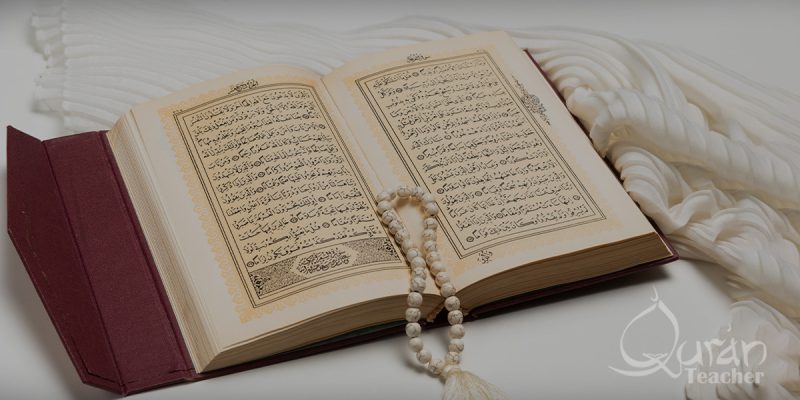In the rich tapestry of Islamic theology, the concept of Houris, often described as celestial, big-eyed maidens, holds a captivating and enigmatic place. The Quraan paints a vivid and alluring image of these heavenly beings. Their mention occurs in various verses, where the Quranic descriptions evoke a sense of divine beauty and purity. These maidens are said to reside in Paradise, serving as a reward for the faithful who have lived righteous lives. The allure of the Houris lies not only in their physical beauty but also in their spiritual perfection, symbolizing the ultimate bliss and fulfillment in the afterlife. The Quranic verses describing Houris have sparked theological discussions, interpretations, and artistic representations throughout Islamic history. It illustrates the profound impact of this imagery on the faith and imagination of believers.
Read More: The Quran and Hadith About Mothers
Read More: What Does The Quran Say Regarding Polygamy?
What is Houris in Islam?
Understanding the Term “Houri”
If you are confused and struck with contemplating what are Houris in Islam, let’s start by knowing what the term means. It refers to a maiden characterized by large, beautiful black eyes. Technically, it is the abbreviated form of the full term “hour al-‘in.” It means to signify a striking contrast between the whiteness of their eyes and the darkness of their iris. As mentioned in the Quraan and other Islamic teachings, houris possess fair skin, captivating wide eyes, and are all of the same age in paradise. They have lips that are beautifully red and boast well-proportioned physiques.
As Explained In The Quraan
The Quran details the features of houris across various verses and surahs, using different terms interchangeably like qasirat al-tarf (قاصرات الطرف), khayratun hisan (خیرات حسان), ‘urub (عُرُب), atrab (اتراب), and kawa‘ib (کواعب) to paint a comprehensive picture. Each term sheds light on distinct aspects of these beings. For instance,
- Qasirat al-tarf explains their modest and chaste behavior, focusing their gaze solely on their spouses.
- Khayratun hisan emphasizes their righteousness and loveliness.
Exploring each instance where the houris are mentioned in the surahs provides believers with a detailed glimpse into the nature of the heavenly reward promised to the devout.
Surah Al-Rahman
The Surah Rahman is often referred to as the Quran’s special chapter because it discusses the hur in Jannah in two sets of verses. In the section where Allah describes the rewards of paradise, the houris are mentioned as one of these rewards. The verses state:
“In them are maidens of restrained glances, whom no human has touched before, nor jinn. (56) So which of your Lord’s bounties will you both deny? (57) As though they were rubies and corals. (58)” (55:56-58)
As already mentioned, the term “qasirat al-tarf” used in the Arabic text means they only look at their spouses. The verse highlights that no human or jinn has ever touched them, indicating their virginity. It might also imply that they are unique, unseen by any human or jinn before. Lastly, verse 58 compares them to rubies and corals which tells about the redness of their lips as a sign of sheer beauty.
Verses 70-76 of Surah Rahman mention:
“In them are maidens good and lovely. (70) So which of your Lord’s bounties will you both deny? (71) Houris secluded in pavilions. (72) So which of your Lord’s bounties will you both deny? (73) Whom no human has touched before, nor jinn. (74) So which of your Lord’s bounties will you both deny? (75) Reclining on green cushions and lovely carpets. (76)“
The term “Khayrat” originates from “khayr,” meaning good. This implies that the houris in Islam are virtuous and righteous—kind, generous, loving, and well-mannered. “Hisan” stems from “hasan,” meaning beautiful. So, “khayratun hisan” signifies a good, beautiful woman. In verse 72, Allah mentions that these hurs are secluded in pavilions, giving their protection and modesty exclusive to their spouses. Notably, verse 74 echoes a prior point from verse 56 says that no mortal has ever touched them—they are pure virgins. Lastly, verse 76 describes their dwelling, with beds on beautiful green cushions and lovely carpets that uplift the allure of the houris’ surroundings.
Surah Al-Waqi’ah
In verses 22-23 of Surah Waqi‘ah, Allah introduces the topic. The verses read:
“And big-eyed houris (22) like guarded pearls (23)” (56:22-23)
In verses 34-37 of the same surah, Allah mentions:
“And noble spouses. (34) We have created them with a special creation, (35) and made them virgins, (36) loving, of a like age (37).” (56:34-37)
Described as ‘uruban atraba’, they are both loving towards their spouses and of a similar age. This shared age aspect adds to the enjoyment of companionship, as people naturally prefer spouses close to their age, making the association more enjoyable.
The Houris’ Union with the Inhabitants of Paradise
Two Quranic verses affirm that the houris are wed to individuals in paradise:
“So shall it be, and We shall wed them to black-eyed houris.” (44:54)
“They will be reclining on arrayed couches, and We will wed them to big-eyed houris.” (52:20)
This doesn’t imply a literal marriage ceremony for someone to become mahram. It signifies the hurs are granted as a reward for one’s life on earth.
They Are Very Delicate And Precious
In verses 48-49 of Surah Saffat:
“And with them will be maidens, of restrained glances with big [beautiful] eyes, (48) as if they were hidden ostrich eggs.” (37:48-49)
Similar to Surah Rahman, Surah Saffat depicts houris with modest, big, and beautiful eyes. The verse symbolizes their whiteness and delicacy, guarded like eggs beneath a bird’s wings. This reflects their purity yet again, and seclusion in pavilions mentioned in earlier verses.
Regarding Hur And The Female Residents In Jannah
Some suggest that the term hur al-‘in is gender-neutral, potentially encompassing male equivalents of houris. This implies that women, too, may enjoy the company of handsome husbands in paradise. While verses about the houris primarily address the rewards for men in paradise, women are not excluded from special provisions. Allah has created spouses for women, granting them the choice to be with their own husbands or opt for another inhabitant of paradise. It’s crucial to note, however, that Allah has designed women to prefer a monogamous relationship. Therefore, women will have only one husband in paradise, aligning with their inherent nature and upholding their dignity.
However, the status and beauty of a believing woman in Paradise surpass that of the hoor al-‘iyn. (Although numerous narrations discuss this, none can be conclusively proven as sound.) When a righteous woman from this world enters Paradise, it is a reward for her virtuous deeds and an honor from Allah, acknowledging her religious commitment and righteousness. In contrast, the houri in Paradise exists as a delight created for someone else, a reward for the righteous deeds of a believing man. This distinction highlights the elevated status of a woman who enters Paradise based on her own merits, likening her to a queen or princess. The houri, on the other hand, despite her beauty, is inherently subordinate to the believing man for whom Allah created her as a reward.
Read More: Getting Into The Habit & Completing The Quran During Ramadan
Read More: How To Get Your Duas Accepted
The Ending Notes
For more on houris and other topics important in Islamic teaching, Quraan Teacher is your guide. Moreover, reach out to us for proper guidance on learning Quran online. We have qualified teachers who not only help you learn Quran online but also make it easier for you to understand the teachings of our religion.

